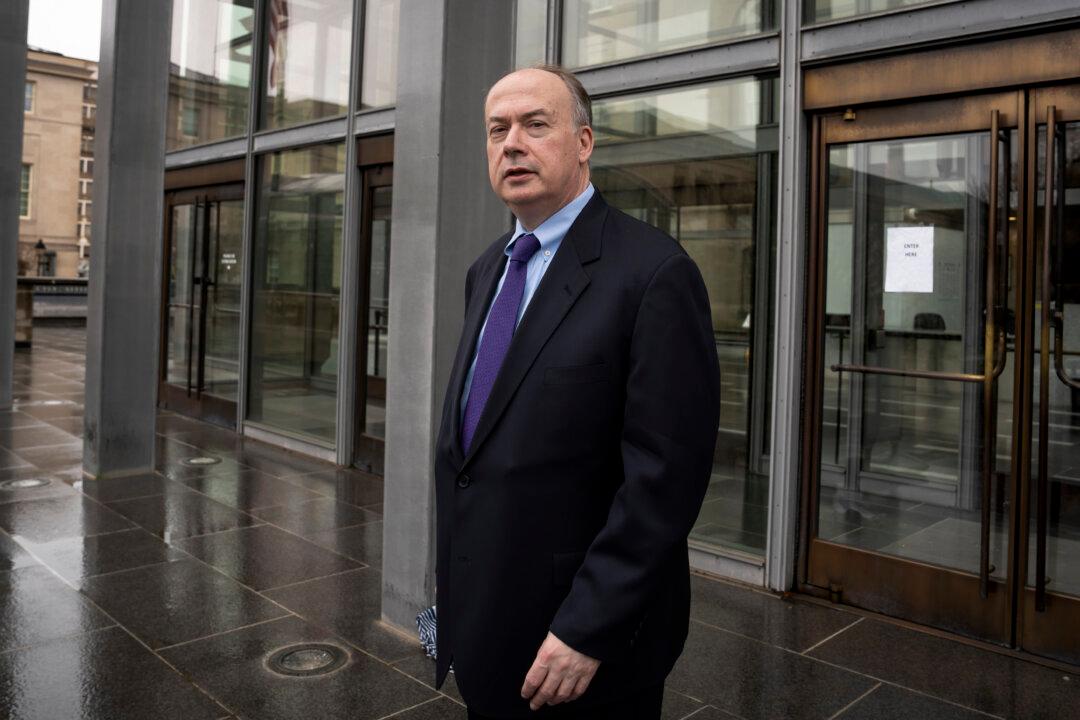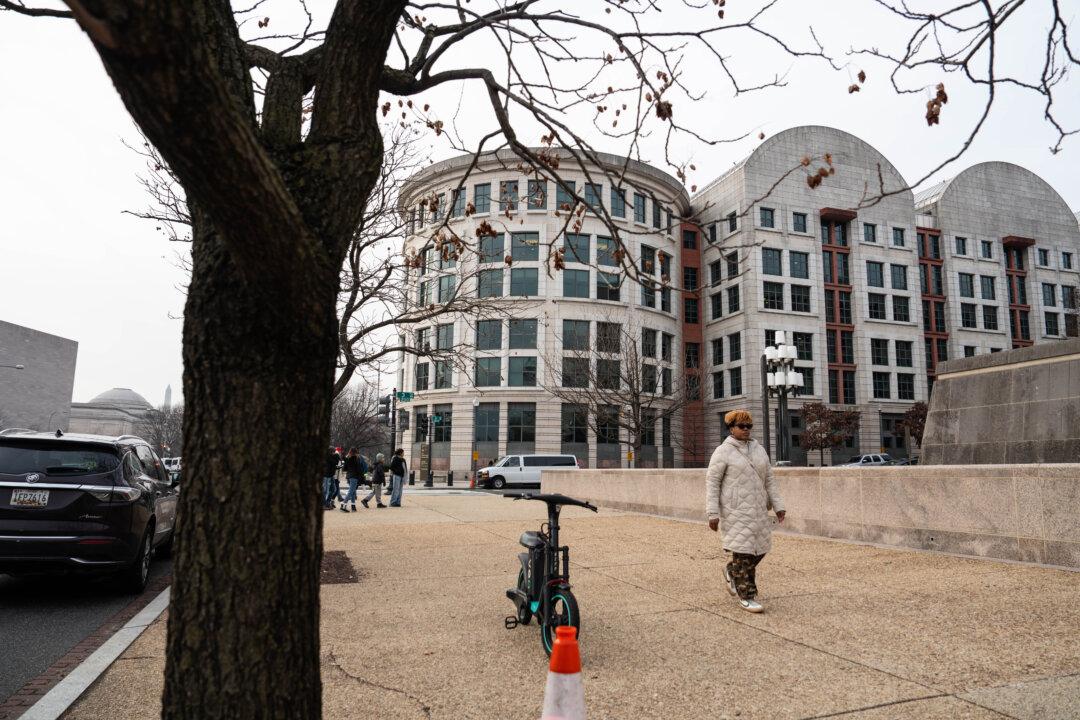WASHINGTON—The defense team for former Department of Justice official Jeff Clark rested on April 3 in his D.C. bar disciplinary trial, but not before asking the adjudication panel to allow the hearing to go into recess so they could proceed immediately to an expedited appeal process.
Disciplinary Chair Merrill Hirsh rejected the request. Both he and D.C. Bar Disciplinary Counsel Hamilton Fox III said they were unaware of a legal procedural vehicle for such an interruption, which would involve Mr. Clark temporarily waiving his 5th Amendment rights against self-incrimination.





